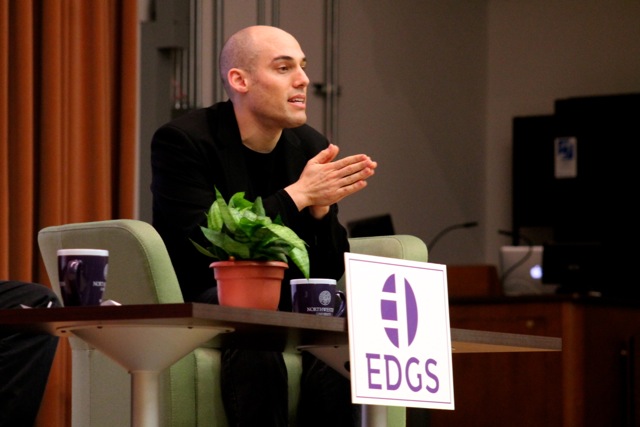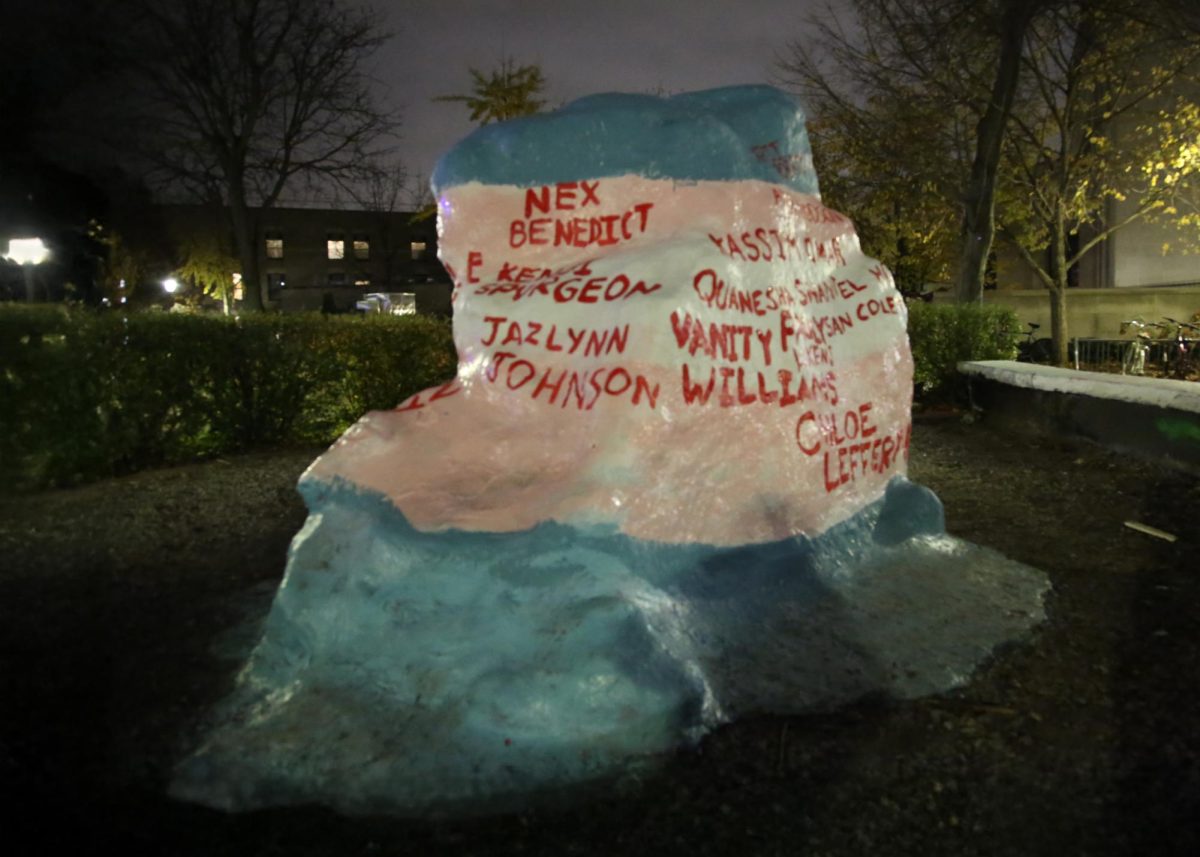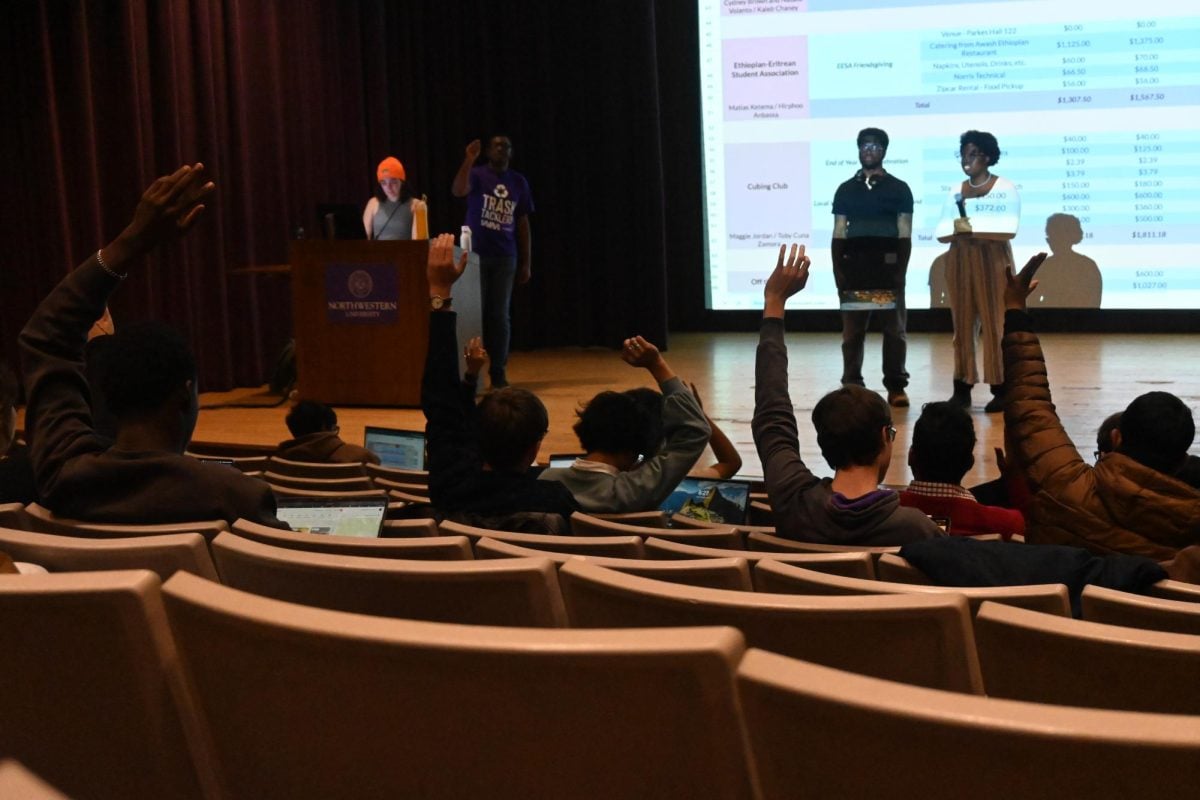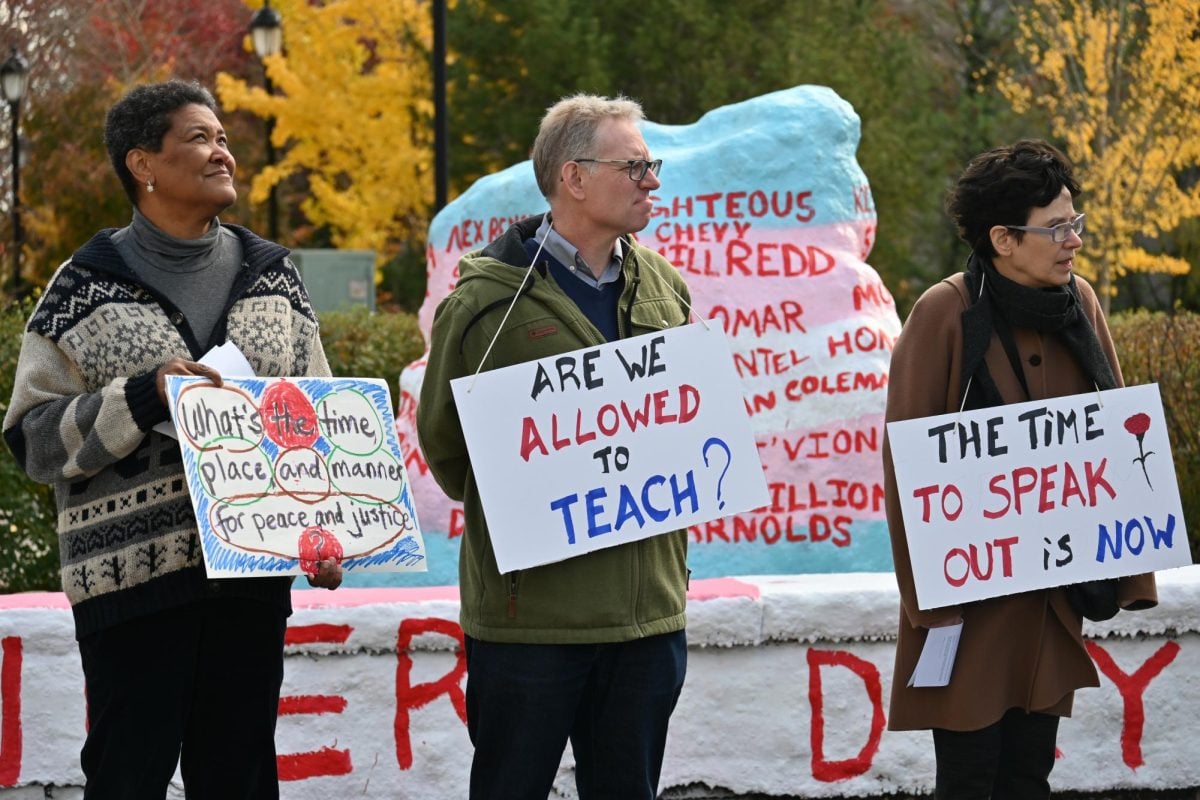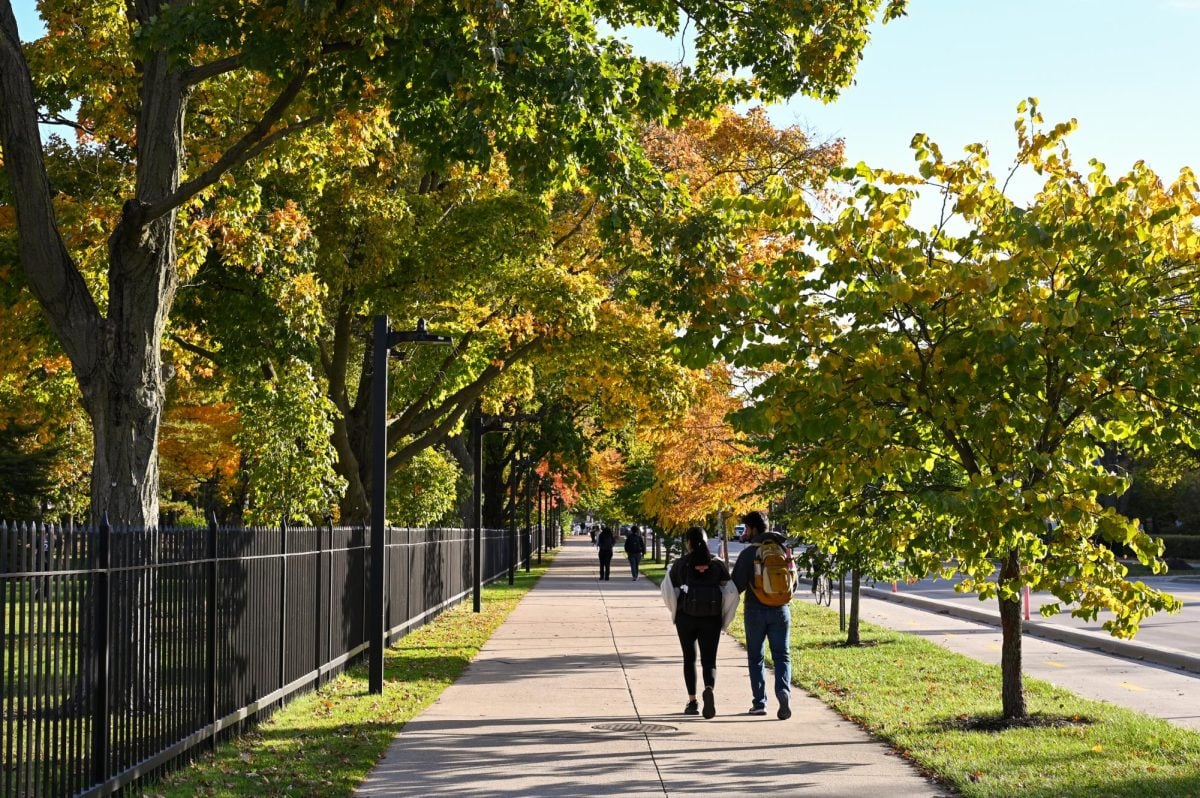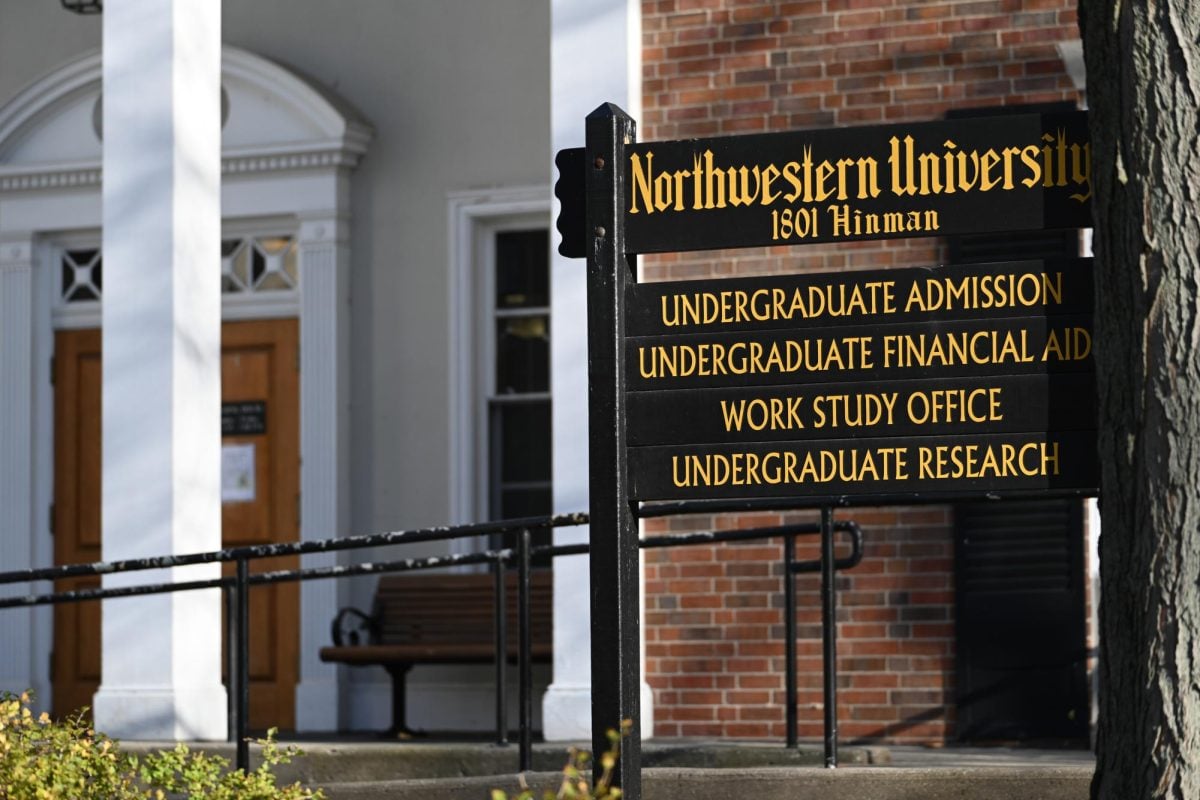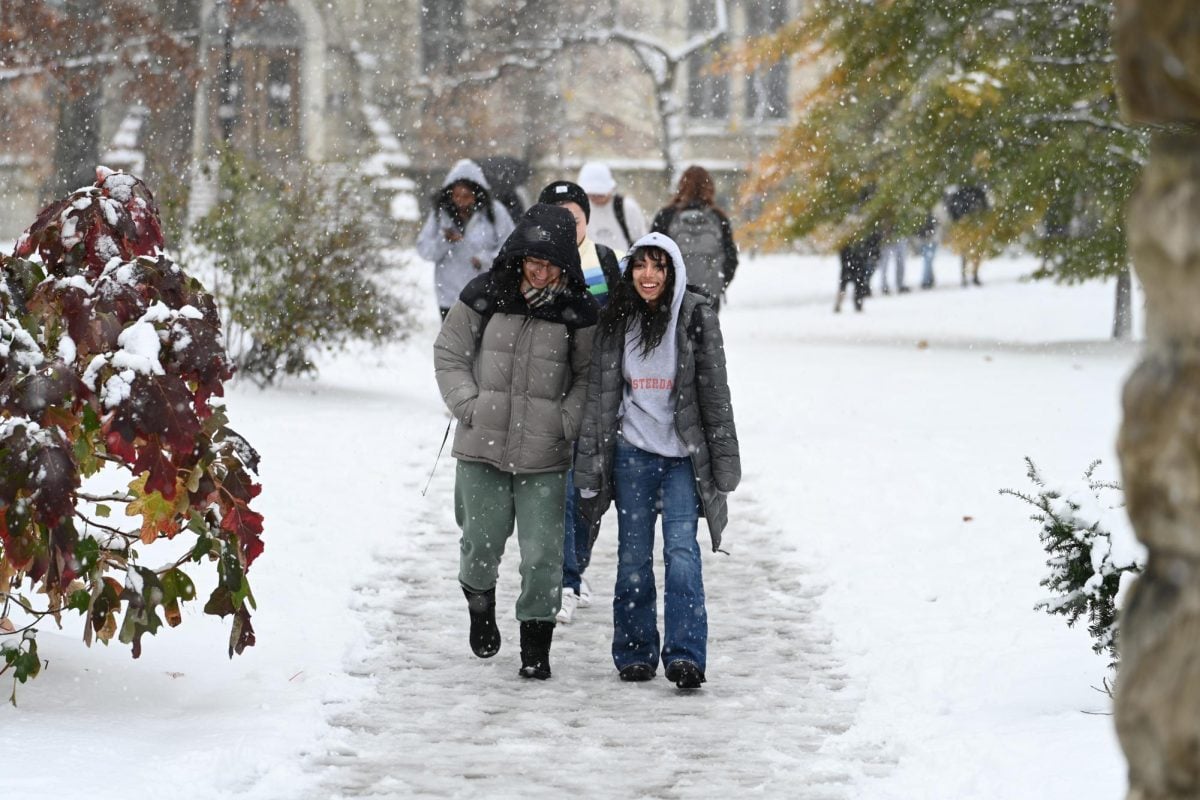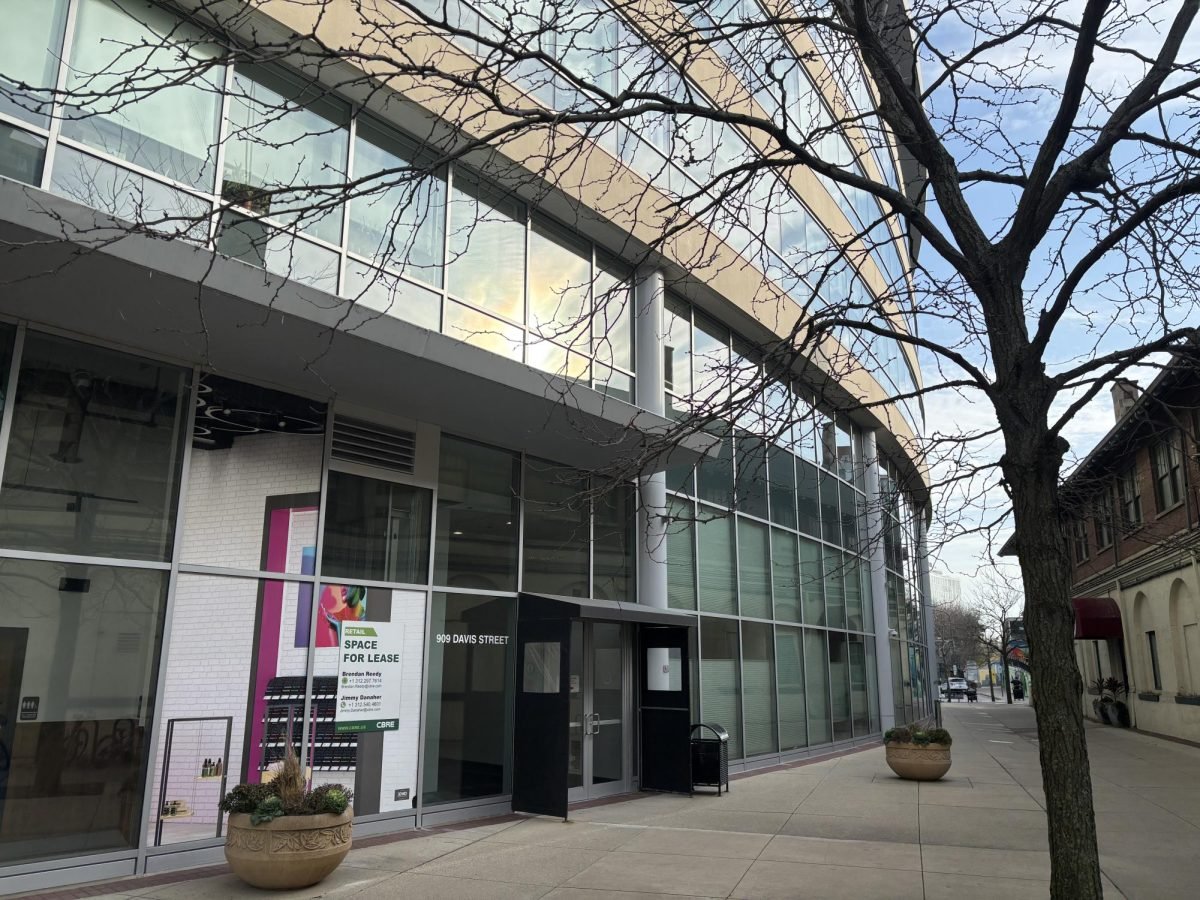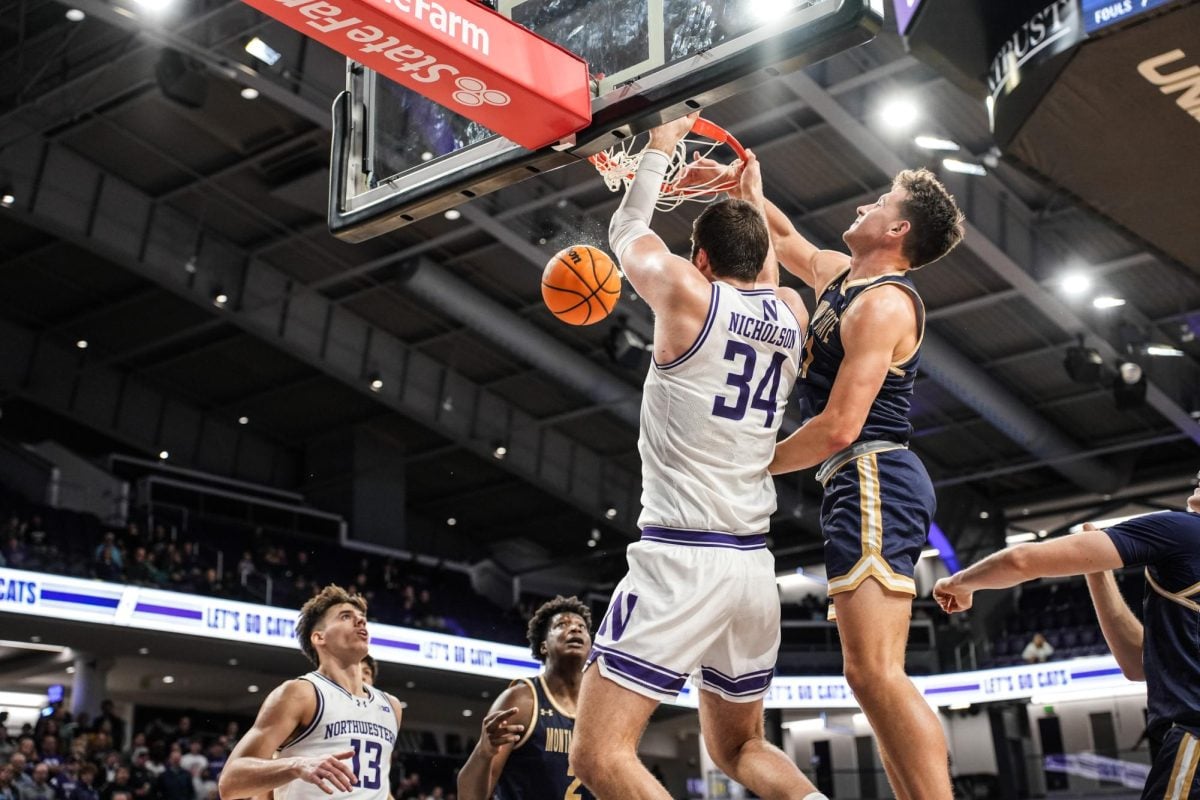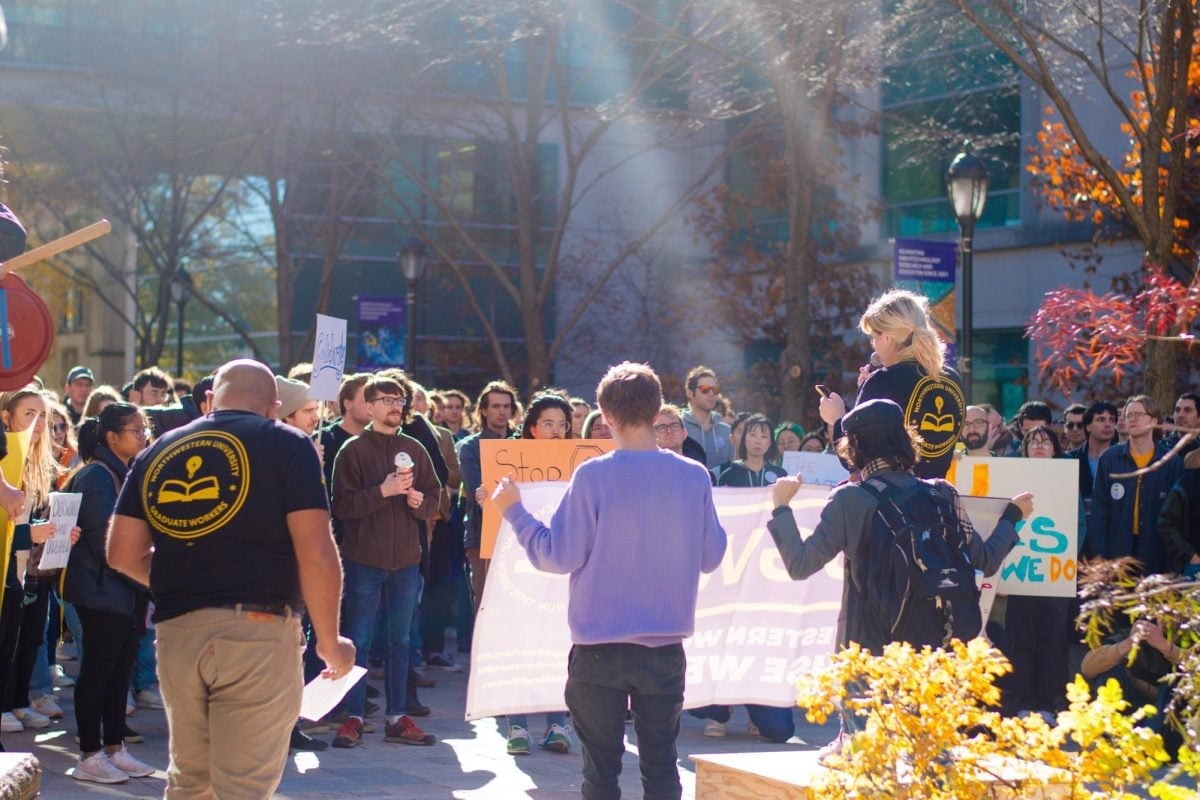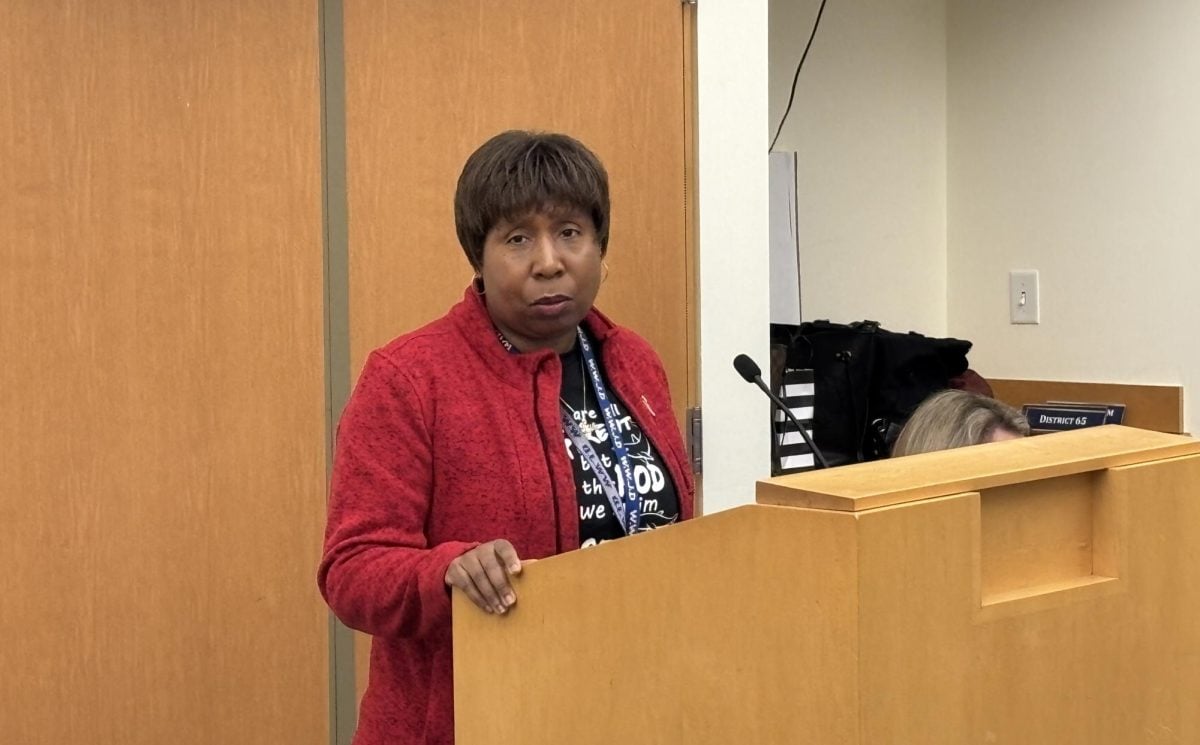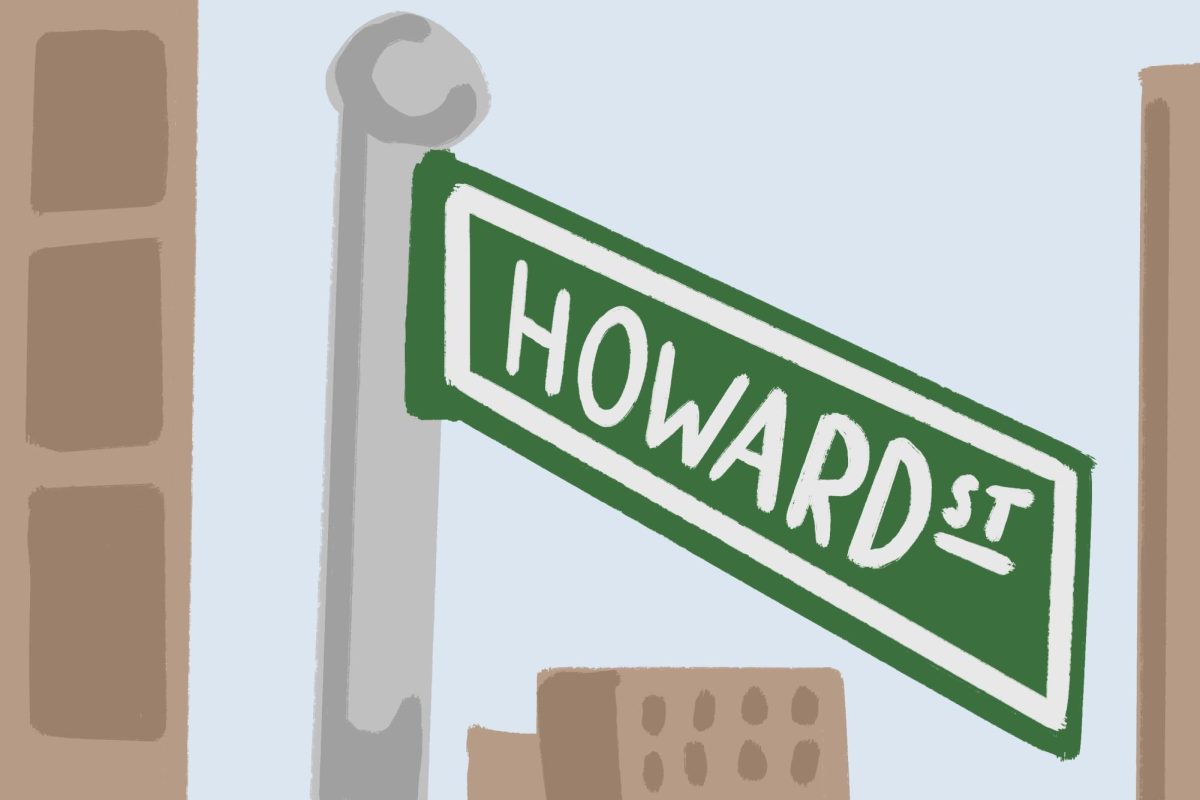The Northwestern community packed Ryan Auditorium on Monday for a film screening and talk by director Joshua Oppenheimer, who spoke about his award-winning documentary on the 1965 genocide in Indonesia.
“The Act of Killing” stages a recreation of mass murders committed by death squad leaders in 1965 when the military overthrew the Indonesian government. Two of the original perpetrators reenacted their crimes for the film, demonstrating how 2.5 million suspected Communists were intimidated and then killed.
After the screening, Oppenheimer discussed the documentary’s production.
“I don’t see myself as a documentary filmmaker,” he said. “I see myself as someone who is interested in exploring the hybrid space between documentary and fiction as a way of exploring (how) what appears to be our factual reality is constituted and constellated by myriad, interlocking fantasies.”
The Equality Development and Globalization Studies program presented the event, which was co-sponsored by other campus groups. Political science Prof. Jeffrey Winters, founder and director of the program, opened the screening. Winters, who studies Indonesian political systems, said the documentary was important for NU students to see because it examines the line between inhumanity and humanity.
“It is probably the most important massacre of the 20th century that no one’s heard of,” he said. “It is important to know.”
Oppenheimer said he originally traveled to Indonesia to to make a film about plantation workers. He planed to dramatize how a lack of unions forced women to spray herbicides without any equipment, which caused them to die in their 40s. The women were afraid to organize because at the time unions were associated with Communists. But Oppenheimer realized he was on to something bigger — the women were living in fear of the anti-Communist government that has been in place since 1965.
In his talk, Oppenheimer noted the two perpetrators in his film are proud of their past and live guilt-free. He originally approached many of the perpetrators about creating isolated reenactments of their crimes but eventually decided to follow two murderers, gangsters Anwar and Adi, for five years.
Oppenheimer said the challenge was ensuring that none of the dramatizations involved any victims or their families.
“I eliminated 75 percent of extras because it was important that there was no survivors in the reenactments,” he said.
Approaching the gangsters as human beings helps highlight the nature of human evil, Oppenheimer said. He shows how the murderers lie to themselves to justify their actions to shield themselves from guilt. For example, the gangsters convince themselves to believe propaganda demonizing Communists, though they know the films are false.
At the end of the documentary, the lead gangster plays the victim in the reenactment and realizes the pain those murdered felt.
“Being human they are moral beings,” Oppenheimer said of the gangsters. “They know what is right and wrong, and they need to protect themselves from torment and guilt. So much of our evil is bound up in morality.”
Medill freshman Gauri Rangrass said she came to the event after seeing Oppenheimer on “The Daily Show.” Although she had already seen the film, she said Oppenheimer’s talk gave her new perspective.
“I think what he said in the last few minutes about lying to oneself, how that was really the aim of the film,” she said. “I didn’t pick up on that having seen it a few times before, but now I can look at the film a different way.”
Email: [email protected]
